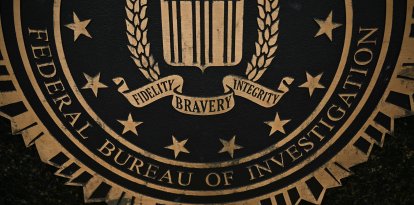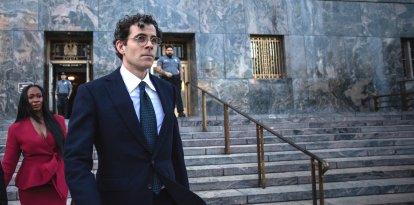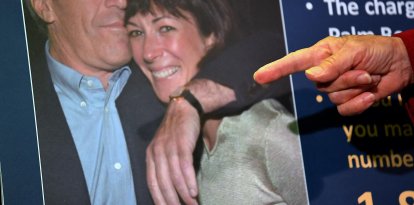Same-sex marriage and female priests: Controversy surrounding the Catholic Synod
Pope Francis' ambiguous response to several cardinals, leaving the door open for the blessing of homosexual marriages and for women to be ordained priests, marks the beginning of the potential redefinition of the church.

(Vatican News)
This week marks the beginning of the Synod on Synodality, a gathering of church leaders a lay people to collaborate on ideas for the good of the church. Pope Francis wants to redefine the future of the Catholic Church, which has naturally brought about controversy. Four cardinals and a bishop sent the pope five questions on key issues regarding the institution's traditional positions, and the pope's response has fueled doubts rather than ease them, especially in relation to the blessing of gay marriages and female priests.
Concern of several prelates about the drift of the Church
Cardinals Walter Brandmüller (94 years old), from Germany, president of the Pontifical Committee for Historical Sciences; American Raymond Burke (75 years old), prefect emeritus of the Apostolic Signatura; Mexican Juan Sandoval Íñiguez (90 years old), archbishop emeritus of Guadalajara; Guinean Robert Sarah (78 years old), prefect emeritus of the Dicastery for Divine Worship and the Discipline of the Sacraments; and Bishop Emeritus of Hong Kong Zen Ze-Kiun (90 years old) presented their apprehensions to the pontiff in five dubias (doubts). It is a format of formal questions for the pope to respond with "yes" or "no" without theological argumentation and to clarify the doctrine of the church. Cardinal Gerhard Müller, prefect emeritus of the Dicastery for the Doctrine of the Faith, published a message aligning himself with the five cardinals.
Francis' response, in seven pages written in Spanish, allows for multiple interpretations, so the prelates reformulated the questions and sent them once again to the pope. They also expressed public disappointmet that the pope had not adequately responded to them. The Vatican rushed to make the response letter public, insinuating that the five cardinals, who are highly critical of the pope’s positions, wanted to boycott the beginning of the Synod and damage the image of Pope Francis.
‘Confusion among the faithful’
The cardinals issued a press release on Sunday explaining that they presented the dubias before the Synod, "in view of the statements of cardinals and bishops openly contrary to the doctrine and discipline of the Church." They say the pope’s words "continue to generate great confusion among the faithful and other people of good will."
Among the five questions, the prelates questioned whether the Church can admit "as a 'possible good,' without betraying revealed doctrine, objectively sinful situations such as unions between people of the same sex." The pope assured that the church's concept of marriage is clear: “an exclusive, stable, and indissoluble union between a man and a woman, naturally open to procreation. Only this union can be called ‘marriage.’ Other forms of union realize it only in 'a partial and analogous way' (Amoris Laetitia 292), so they cannot be strictly called ‘marriage.’”
The Pope refers to ‘pastoral prudence’ and ‘charity’ when speaking about homosexual unions
The pope added that "for this reason, the Church avoids any type of rite or sacramental that might contradict this conviction and suggest that something that is not marriage is recognized as marriage." However, Francis then emphasizes that "in our relationships with people, we must not lose the pastoral charity, which should permeate all our decisions and attitudes. The defense of objective truth is not the only expression of this charity; it also includes kindness, patience, understanding, tenderness, and encouragement. Therefore, we cannot be judges who only deny, reject, and exclude."
Furthermore, the Pope points out that "pastoral prudence must adequately discern whether there are forms of blessing, requested by one or more persons, that do not convey a mistaken concept of marriage. For when a blessing is requested, it is expressing a plea to God for help, a supplication to live better, a trust in a Father who can help us live better."
Female priests ‘can be an object of study’
The question of the ordination of women was also brought before Francis. In his response, the Pope seems to point out that the issue has not yet been studied in depth, which led the cardinals to think that he may be considering it. "To be rigorous, let us recognize that a clear and authoritative doctrine on the exact nature of a 'definitive statement' has not yet been fully developed. It is not a dogmatic definition, and yet it must be adhered to by all. No one can publicly contradict it and yet it can be a subject of study, as with the case of the validity of ordinations in the Anglican Communion," Francis wrote.
Amidst the controversy, this Wednesday the Synod on Synodality begins, an initiative from the pope to renew the Church. Until Oct. 29, 464 people (75% of them cardinals) will debate the future of the institution. For the first time in history, among the 365 summoned with the right to vote, there are 54 women. This is a sign of Francis’ intentions with this gathering: the holy father translates Synodality as "walking together," giving shape to his idea of a more open church, more participatory and more focused on current issues. The meeting in the Vatican is preceded by two years of consultations with Catholics in every parish in the world, who were invited to express their vision for the church and propose changes.

























